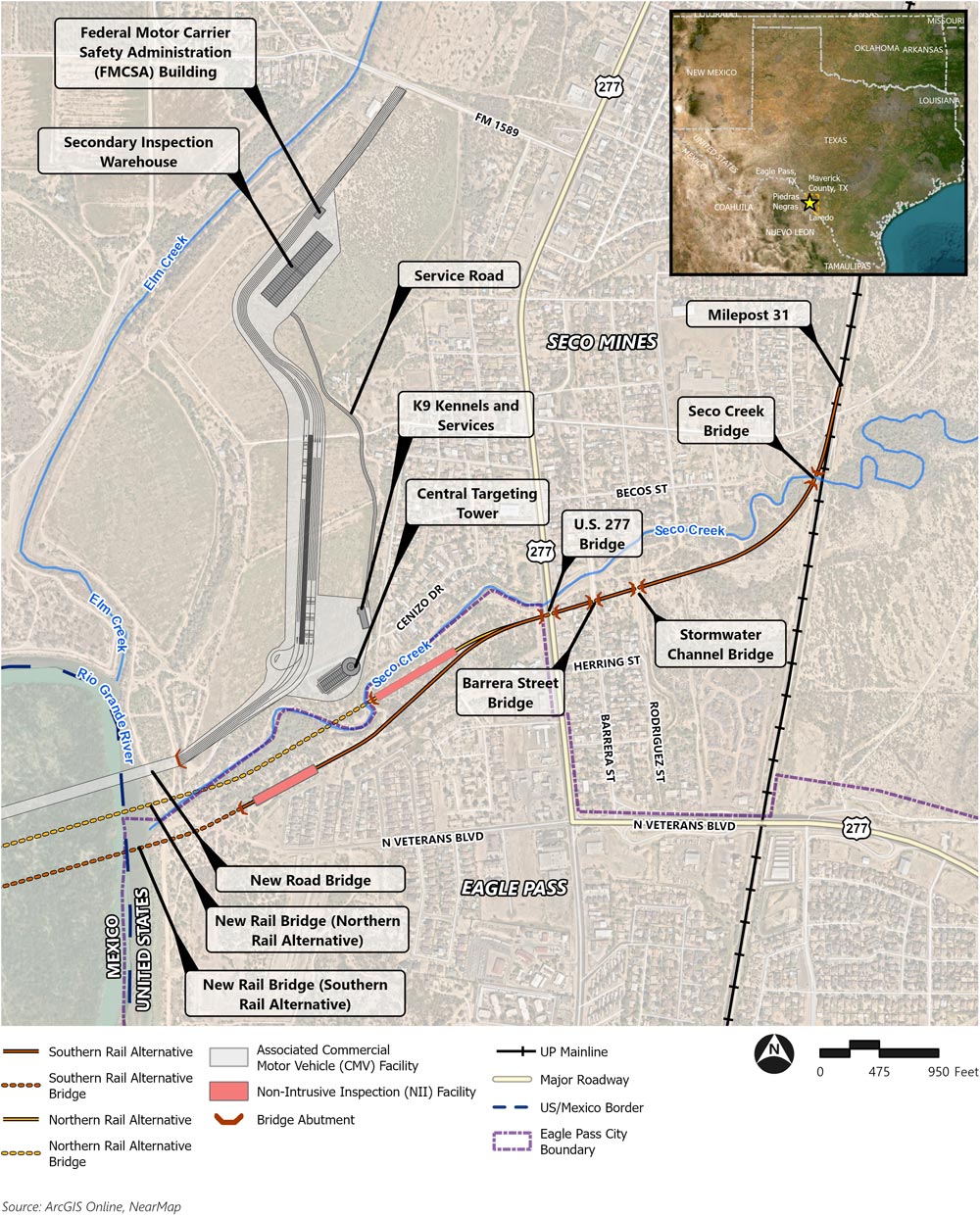Final Environmental Impact Statement Available
OEA issued the Final Environmental Impact Statement (Final EIS) on August 6, 2025.
Welcome to the website for the Proposed Green Eagle Railroad Environmental Impact Statement
Overview
Green Eagle Railroad, LLC (GER), a subsidiary of Puerto Verde Holdings (PVH), filed a petition with the Surface Transportation Board (Board) for authority to construct and operate approximately 1.3 miles of new freight rail line (the proposed line) in Eagle Pass and Maverick County, Texas. The proposed line would be part of an international commercial transportation corridor proposed by PVH, the Puerto Verde Global Trade Bridge project. In addition to the proposed line, the Puerto Verde Global Trade Bridge project includes a new border crossing for commercial motor vehicles (the associated CMV Facility) between Piedras Negras, Coahuila, Mexico, and Eagle Pass, Texas. Only the rail line is under the Board’s jurisdiction.
The Board’s Office of Environmental Analysis (OEA) determined that the construction and operation of the proposed line has the potential to result in significant environmental impacts. Therefore, OEA prepared an Environmental Impact Statement (EIS) in compliance with the National Environmental Policy Act (NEPA).
What's an EIS?
NEPA requires federal agencies to prepare an EIS for any proposed major federal action that would significantly affect the quality of the human environment. An EIS describes the potential impacts of the proposed federal action on the environment and identifies measures to avoid, minimize, or mitigate these impacts.
The federal action here is the Board’s decision to authorize with appropriate conditions or to deny GER’s petition for authority to construct and operate the proposed line. Separately from the Board’s final decision on GER’s petition, the Puerto Verde Global Trade Bridge project would require permits from the United States Coast Guard, the U.S. Army Corps of Engineers, and the International Boundary and Water Commission. The U.S. Coast Guard participated as a Cooperating Agency in the EIS process. A cooperating agency is a federal agency that has jurisdiction by law or special expertise with respect to any environmental impact involved in a proposed project.

